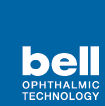You didn’t grit it through a decade or more of training to get mired in accounting. We get it. But dealing head-on with the profitability (or lack thereof) of your practice may seriously affect your professional sense of wellbeing. Altruism only puts food on the table for so long.
A good place to start is with yourself. Are you fairly compensated compared to other ophthalmologists? Check out these salary surveys. Are you within an acceptable range, or are you drifting to the lower end of the scale? Why? Are you plowing too much of your salary back into the practice? Are you staffed correctly? What part of your business is bleeding red ink?
This may sound counterintuitive or selfish, but you need to pay yourself first. That’s how successful entrepreneurs do it. And like it or not, you’re a member of the “E” club.
What part of your business is bleeding red ink?
It’s doubtful that you have the time to immerse yourself in the intricacies of a profit and loss statement. That’s why accountants were created. A good one can determine if you are within industry ratios for expenses and revenues, and group your services into lines, like Cataract and LASIK surgery. You’ll have the information you need to direct your marketing for the best return, and to allocate your time to the most profitable parts of your practice. This helps you along by giving you data to inform decisions.
Staffing is the biggest expense of most ophthalmology practices, so work with your accountant to assess productivity. What is the role of every employee in contributing to profitability? At the very least, you’ll gain insight into the types of employees who can grow your practice. You can be a compassionate and altruistic doctor and still enjoy the financial rewards of your work. So, if you don’t have an accountant, you have time right now to hire one.
